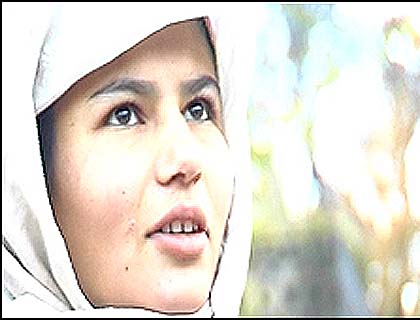Who are Jogis
Jogis are one of the ethnic minorities in Afghanistan and their population is formed by around 100,000 people. (Tribes resembling to Jogis are called Gipsy or Jatts in America and Europe.) The Jogis migrated to Afghanistan from Tajikistan around one and half century ago. Until present, they neither have a specific location nor do they own a piece of land in Afghanistan. The life style of Jogis is quite interesting and different from other inhabitants of Afghanistan even from the nomads. The shelters they live in are made of old pieces of cloths and therefore, portable. They set up their tents in city outskirts normally near old cemeteries or garbage areas. It is worth mentioning that after living for a certain period in an area; they relocate themselves to other places.
No Identity
The government of Afghanistan has not officially recognized the Jogis and no Tazkira (Afghan identity card) is issued to them. In other word the Jogis still have no particular identity. Although the Jogis have not been issued any Tazkira, they hold voting cards and can cast their votes during elections. In the last two presidential elections, they voted to President Hamid Karzai hoping that he will assist in resolving the issues Jogis are facing. But unfortunately, after elections, no one remembers the Jogis and they have more problems – a major of which is their lost identity.
In the history of Afghanistan there is no evidence available that can show that the Jogis took part in politics. They live a normal and natural life. The Jogis have had no share in the billions of dollars aids donated to Afghanistan by international community after 2001. They are like prisoners and are deprived of all rights. They even travel with fear from place to other. The Jogis say, they have to relocate because they do not possess any Tazkira and are afraid that police may suspect them as spies. Also, the Jogis cannot travel legally to other countries and have to avail the services of human smugglers for this purpose.
Jogi women work
Afghan society is man dominated. Men are responsible to work, earn livelihoods and cover the all expense while women are normally not allowed to come out of their homes. Unlike this, the women of Jogis work and are the bread-winners of their families. They work as palm-readers or are involved in bagging. A Jogi woman, in spite of being pregnant, holds her child and a bag and has to work from dawn to dark. For delivery of their babies, they do not go to maternity hospitals but delivery takes place quite in a natural way. Mother and child mortality rates are quite high among Jogis. Jogi men, generally, do not work but are qualified in looking after horses kept for Buz Kashi (a traditional Afghan game), gaming partridges, quails etc), hunting grey hounds and playing Dambora (a traditional musical instrument in Afghanistan). Jogis are the most deprived section of Afghanistan.
Children of Jogis
As mentioned Jogis are not issued Tazkira and therefore, their children can not go to schools. The children of Jogis have interest in getting education and therefore have got admission in schools using fake documents. If this fact is disposed to their school authorities, they could be dismissed and lose the chance of getting education. Other children dislike the children of Jogis and do not allow them to take part in games they play in schools or playgrounds. They keep the Jogi children away by hitting them with sticks and stones.
Attitude of people towards Jogis
It is generally believed that Jogis do not possess any status in Afghan society as they do not belong to any religion and therefore, are not respected. The Jogi women are insulted in streets and bazaars by reckless youths which is not only a serious issue but also regrettable. Jogi men are coward and do not work compelling their women to get involved in immoral sorts of activities, even prostitution.
A distinct Jogi
Rangin is a distinct Jogi. He is bigamy and does not allow his two wives to go for bagging like other Jogi man do. Rangin is an expert in playing Dambora (a widely played traditional musical instrument of Afghanistan). He participated in All Afghanistan Dombora contest held in Shibarghan province of Afghanistan and was awarded the first position. After some time, the same kind of contest was organized in Uzbekistan. Five contestants including Rangin was invited from Afghanistan. Because of not having a Tazkira, Rangin could not get a passport. Although his relatives gathered and requested high government officials to issue him a temporary Tazkira so that he can participate in the contest - no one heard their voices. The media, especially BBC covered the issue but no measure was taken to resolve the issue of Rangin and other Jogis.
Pride of Jogis (based on their own opinions)
Jogis say:
Other tribes in Afghanistan sell their daughters; if one desires to get married with them but we do not have such a custom. There's nothing by the name of dowry and no money is received from grooms for marriages.
In the last three decades of war, other people of Afghanistan killed and looted each other but we did not kill a single person nor looted a house.
None of the Jogis has committed a crime until today and in prisons you can not find a Jogi man or woman.
We mind our own business and do not meddle in the affairs of people. Yet we are not allowed to live freely. It is quite amazing that the government of Afghanistan - that has been blowing the trumpets of equality and justice for all minorities – has turned a deaf ear to the plight of Jogis. It is the indispensable right of Jogis that they should also be formally recognized as citizens of this country.

